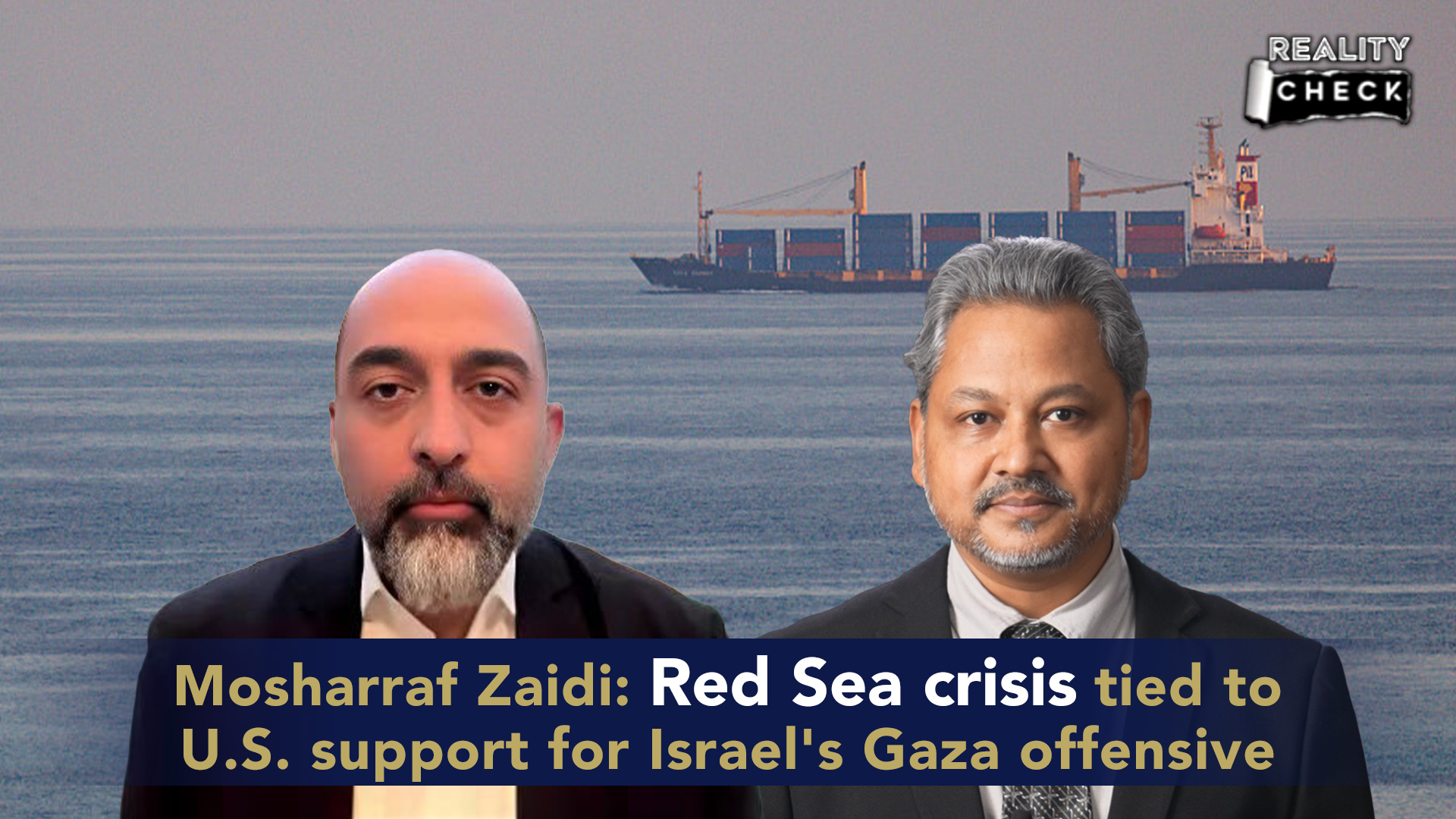Editor's Note: On January 22, the U.S. and British military with support from some of their allies carried out fresh strikes on Houthi targets in Yemen – the second such raid in 10 days – responding to the Iran-aligned group's persistent attacks on commercial shipping in the Red Sea since last November. The Houthis have asserted that their attacks are in solidarity with Palestinians as Israel continues its offensive in Gaza. The Houthi attacks have disrupted global shipping, deepening fears that the fallout from the Israel-Hamas war could destabilize the Middle East with far-reaching impact on global geopolitics and economy. To understand the complexities behind the Red Sea crisis, CGTN's Sr. International Editor Abhishek G Bhaya spoke with Mosharraf Zaidi, a Pakistani geopolitical analyst and a senior fellow at the Islamabad-based think-tank Tabadlab, who closely monitors developments in the Middle East. The views expressed in the video are his own and not necessarily those of CGTN.
Edited excerpts:
CGTN: What's your take on the latest airstrikes on Houthi targets in Yemen, carried out by the U.S. and UK forces with support from their allies such as Australia, Bahrain, Canada and the Netherlands?
Mosharraf Zaidi: Well, this is a continuum of a crisis that without question, and we need to be really clear on this, is anchored in the ongoing genocide that Israel is committing in Gaza. And so, as long as this genocide continues, the opportunity for regional, sub-regional, state and non-state actors to manufacture trouble is going to continue. So then, when that gaping hole in human conscience, that is Gaza today, is left to continue to be exploited by Israel is manufacturing these crises.
The fact that the U.S. and the UK and other countries have to then firefight and deal with those smaller fires, shouldn't be seen as some great service to humanity. I think it should be seen as the fallout of the inexplicable and indefensible support that the U.S. government and other Western governments have provided to Israel as it continues to kill innocent men, women and children in Gaza.
CGTN: How do you think it might impact on the overall security situation in the Middle East? And can you also explain a bit as to why the Red Sea shipping lanes are important for global economy and what economic consequences can be anticipated due to disruptions in the Red Sea shipping routes?
Mosharraf Zaidi: Well, I think the simplest sort of explanation is that we saw what happened when supply chains were disrupted and logistics were disrupted during the COVID-19 pandemic. The economic impact it had on every country was devastating. And the fallout of that economic impact was that we had interest rates like we've never seen before. Any kind of disruption to normal sort of shipping lanes is going to cause unspoken and unpredictable consequences in terms of price hikes, inflation, shortages, and potentially even social unrest.
All of the world's most important trade actually passes through these key bottlenecks, whether it's the Panama between North America and South America, or it's the Suez Canal and the Red Sea, you know, essentially between the West and the East. If you think about it in a broader spectrum, all of India's shipping lines depend on this path to Europe. All of Chinese, or a significant portion of Chinese shipping lines depend on this path. And so this path is really important for countries and companies all over the world to be able to exchange goods and services. Any disruption is a problem.
This disruption is especially problematic because of the politics around it. And it's very clear that the Israeli genocide in Gaza is going to continue without any break or without any sort of sanction from the powers that have the ability to put a stop to it. And in particular, that means the United States government.
The U.S. has a choice. It can continue to support Israel's genocide in Gaza as it has done, or it can choose global trade lines, stability, security and predictability. What I think the Americans need to understand is they probably can't have the cake of the blood of innocent civilians in Gaza and eat it too in terms of the benefits of uninterrupted, non-disruptive, predictable supply chains.
CGTN: What role would you see for China – which is one of the few countries that have good relations with most of the big players in the Middle East – play in the current situation that's unfolding in the Middle East?
Mosharraf Zaidi: China has very good and strong relations with all of these countries. That speaks to China's vision and how it positions itself on the global map. But China does not have, just like the U.S. never had, total control over the behaviour of its close allies, partners or friends. There are a set of limitations that restrict what China can or can't do.
Having said that, the expectation from these countries and from the global system will be (looking) for greater Chinese engagement and for more Chinese influence. Because in the absence or in a state of corrosion of the Western powers and their moral standing, that space does need to be filled. The expectation will be for Beijing to take a more proactive role. As China keeps growing in stature, those expectations will keep growing as well.
(If you want to contribute and have specific expertise, please contact us at opinions@cgtn.com. Follow @thouse_opinions on Twitter to discover the latest commentaries in the CGTN Opinion Section.)


